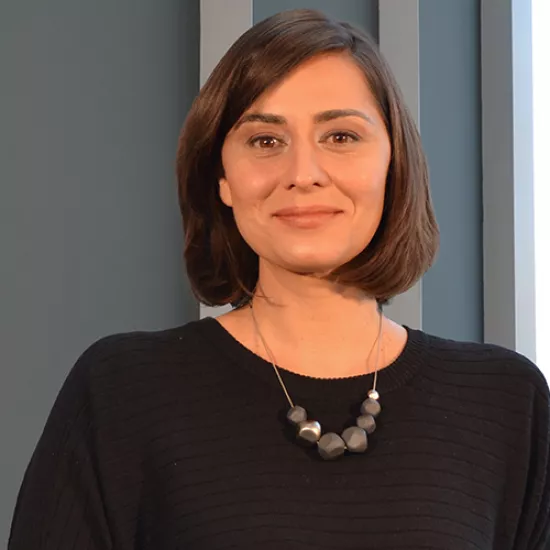
Lilia Topouzova
-
E-mail:
-
Room:CCT 3004
Lilia Topouzova is an Assistant Professor of History and Creative Nonfiction. She is a scholar and a documentary filmmaker whose work is situated at the intersection of history and memory, particularly in relation to political violence, silence, trauma and public remembrance. Her academic research on state repression and its afterlife in post-communist societies appeared in the American Historical Review, Gender & History (awarded the 2018 Souyz Outstanding Article Prize) The Routledge Handbook of Memory and Place, and in the Encyclopedia of Transitional Justice. For her writing on scholarship as a critical media arts practice see, Journal of Visual Literacy and for her creative non-fiction see, The European Review of Books. Topouzova is the scriptwriter of the documentary films The Mosquito Problem & Other Stories (2007) and Saturnia (2012), which she also co-directed. Her films have premiered at TIFF and the Cannes International Film Festival, have received multiple awards, including the 2007 Human Rights Award at the Sarajevo Film Festival, and have been reviewed in the NY Times, The Guardian, The Toronto Star, The Globe & Mail, and Varsity.
Dr. Topouzova held fellowships at Leibniz-Zentrum für Zeithistorische Forschung – ZZF in Germany (2013), Brown University in the US (2014), York University in Canada (2015), the Center for Oral History and Digital Storytelling in Concordia University in Canada (2017), and at the Centre for Advanced Study in Sofia in Bulgaria (2022). Her scholarship and her creative projects have been supported by, among others, the Social Science and Humanities Research Council of Canada and the Canada Council for the Arts.
Topouzova’s interdisciplinary work is characterized by a critical engagement with historical sources and her commitment to lend a public dimension to scholarly research through film and media. She currently holds, along with her collaborator Joshua Arthurs, a SSHRC Connection Grant, Authoritarianism: Lives, Legacies, Traumas. Her collaborative work with artists and scholars Julian Chehirian and Krasimira Butseva resulted in the multi-media installation, The Neighbours: Forms of Trauma.
